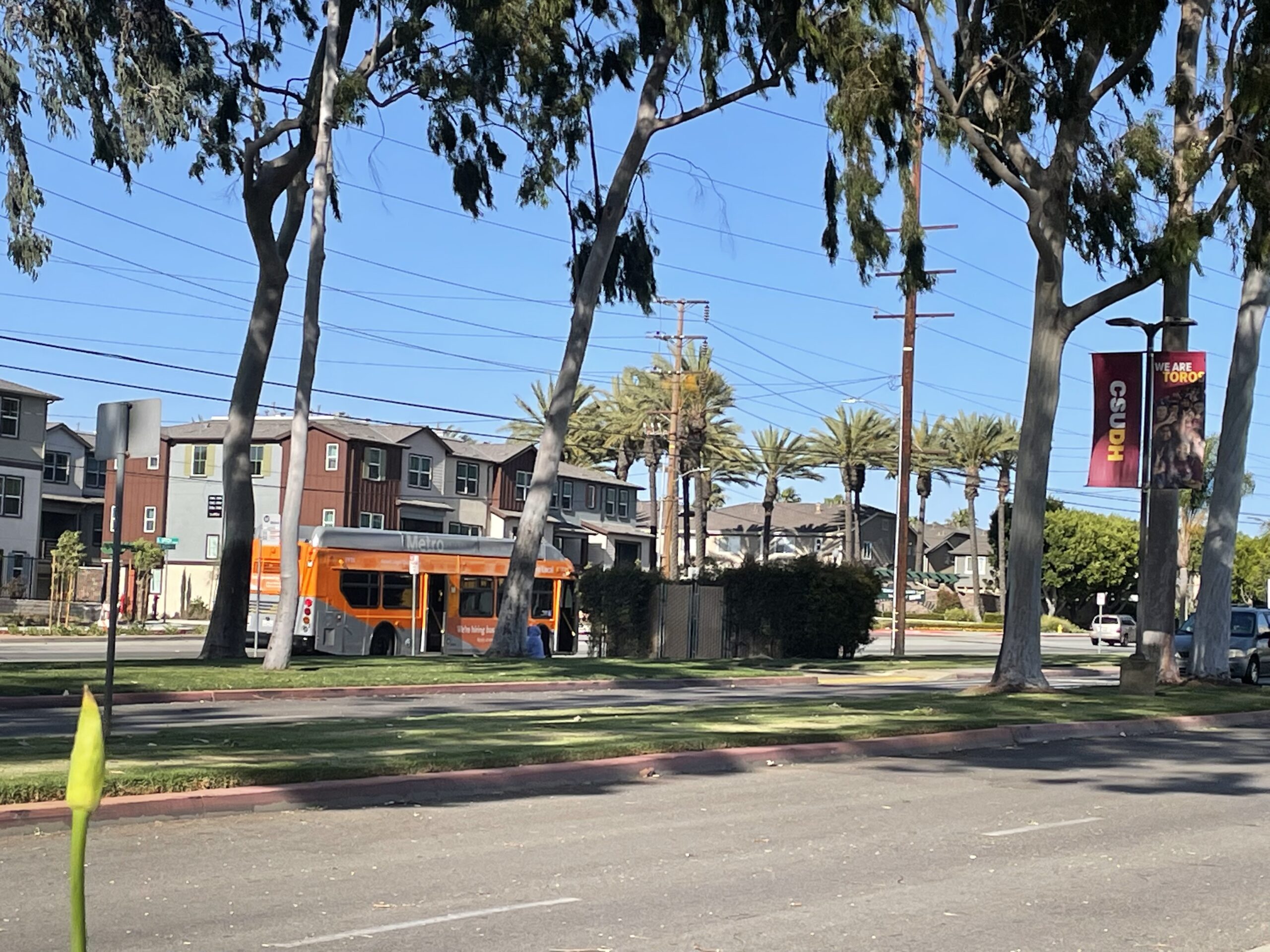Students are beginning to rely on the public transportation which is located in front of Welch Hall. Photo by Evelyn Rodriguez.
By Evelyn Rodriguez, Staff Reporter.
After the Russian attack on Ukraine, the cost of gas skyrocketed to an all time high. Not even in the Summertime when school is out and people go on vacation have the gas prices been so outrageous.
With gas prices getting up to over six dollars, students have had to change their normal routines to get to school, work and other places they need to get too.
For two California State University, Dominguez Hills students, life has changed drastically and they have changed the way they get to campus. Maritza Castro, a Kinesiology major and sophomore at CSUDH driving to school Monday through Thursday is no longer an option. Although Castro still drives to campus on Mondays, Wednesdays, and Friday, she has started carpooling the other two days. On Tuesday and Thursday, two days a week, Castro carpools with another CSUDH student, who lives a few blocks away from her home, which has helped her save on gas and other expenses.
“Since [gas prices] are so high now, on Tuesdays we take her car, and on Thursdays we take mine. We both split the gas cost every other week,” said Castro.
Castro lives in the city of South Gate but also travels to work in Downey, which is quite a drive. “I drive a 2006 BMW, the gas stations around where I live are barely under six dollars a tank, the amount it takes to fill my tank has almost doubled in price,” said Castro.
Castro has also mentioned that ever since gas prices have gone up, she can’t really go out as much because of the type of car she drives. “It takes quite a bit to fill it up so going out anywhere is sometimes hard,” said Castro.
CSUDH sent out an email that featured an Emergency Grant that supports students experiencing a one-time financial crisis due to unexpected expenses. The minimum grant amount is $250 but can be approved for up to $1,000.
Another student affected by the high gas prices and dealing with a similar situation is Celeste Reza. She has also changed her way of commuting to campus by taking public transportation to get places.
In a prior article published by the Bulletin, students were informed that they could apply for a discounted TAP card priced at $22 dollars per month. A TAP card could also possibly be a solution for students to consider given the unfortunate circumstances being faced at the moment.
CSUDH also offers a ride share program students can take advantage of. The transportation services (Rideshare) mission says “One of our goals is to identify potential carpoolers and/or vanpoolers in targeted areas and assist them in their daily commute to work., via the web page.
If ride sharing with others isn’t something you are comfortable with, students can also promote and encourage several alternatives, such as biking, busing, walking, or telecommuting.
For more information on rideshare, students can visit or call the CSUDH transportation services office at (310) 243- 2893 or email them at [email protected]

